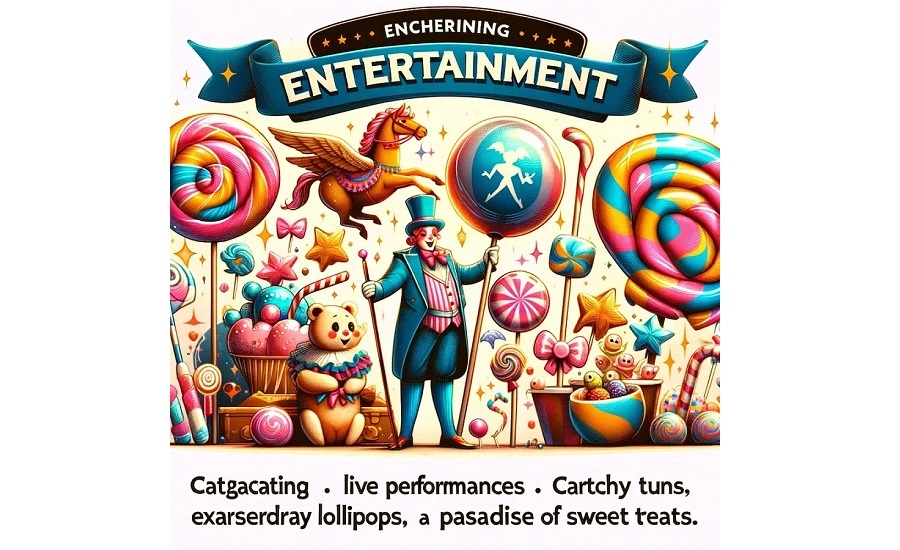When word of the upcoming Willy’s Chocolate Experience first got out, sweet-toothed Scots were intrigued. Digital advertisements with colorful, eye-popping images of candy-filled landscapes tantalized those who spotted the invitations to the event (scheduled February 24 in Glasgow, Scotland) by inviting them to, for a fee, visit “a place where chocolate dreams become reality.”
When the intrigued clicked on the website for the event—a heavily suggested but legally vague riff on Roald Dahl’s Willy Wonka character—they were further enticed with sugar-drenched adventures.
“Your journey begins in an enchanted garden, with giant sweets, vibrant blooms, mysterious-looking sculptures, and magical surprises that add an extra layer of wonder to your Chocolatey Experience!” the site exclaimed. “Navigate through peculiar but enchanting garden collecting delicious beans of all colours, shapes and sizes. (who knows perhaps you might be able to grow your very own enchanting garden!)”
Their appetites piqued, hundreds of people from Scotland and all over the U.K. whipped out their credit cards, clicked on the ticket link, and forked over £35 a head (roughly equivalent to $44 USD) to embark on the magical journey and waited for the magical day (although if they had noticed the nearly nonsensical text in the AI-generated ads like the one below, perhaps they would have saved the money and trouble).

Sadly, instead of taking in a wondrous experience, attendees wondered what the heck happened. Instead of stepping into a wondrous candy-filled atmosphere, they encountered little more than the decorations you might find at a party planned in an hour and given nearly zero budget to execute. The warehouse hosting the event was sparsely decorated. Instead of an expansive, imaginative candy landscape, the gray wall was adorned with a sad mural about the size of a bedsheet. A collection of cheap yard decorations stood in a corner. Instead of mounds and mounds of candy, each guest was given a single jelly bean (handed out by a forlorn-looking Oompah Loompah) and nothing more.
People were furious—at the huge gap between promises and expectations, at the single jelly bean being the only sugar proffered, and by the children being terrorized by a silver-faced villain called The Unknown (a character not in any of the Wonka books or movies). Multiple patrons called the police to complain. Event organizer House of Illuminati rapidly shut the fiasco down and soon posted a curious apology on its Facebook page.
“I am reaching out to address the recent cancellation of the ‘Willys Chocolate Experience’ event,” the post stated. “Firstly, I want to extend my sincerest apologies to each and every one of you who was looking forward to this event. I understand the disappointment and frustration this has caused, and for that, I am truly sorry.” The unnamed poster then goes on to apologize to all 850 people who purchased a ticket to the event and promised refunds to each and every one of them—though, according to multiple news sources, weeks after the event most patrons were still awaiting their money back.
The internet quickly became obsessed with how calamitous Willy’s Chocolate Experience was. News outlets around the world (including Time and Vanity Fair) reported on it, broadcasting pics and videos posted by attendees on their social feeds. Attendees of the American Society of Baking BakingTech show in Chicago chatted about the spectacle in sessions. A horror movie based on the terrifyingly creepy Unknown reportedly is in the works.
True, the story of the huge letdown of the event might still be inducing giggles and outrage, but the story also has one big lesson that could benefit real-life candy makers:
Don’t overpromise and then under-deliver.
There is perhaps no faster way to lose customers than to promise amazing treats but give them something that leaves a bad taste in their mouths. Consumers expect the candy items advertised in the media, or depicted on the package, to remotely resemble the treats inside the wrapper. Similarly, if you’re a manufacturer producing private-label items for a retail customer, they expect results or their customers will read the riot act.
Candy makers should be honest and open with their customers, just as producers expect their suppliers to not give them a raw deal. Doing so will keep your relationships, and your sales, from going sour.

